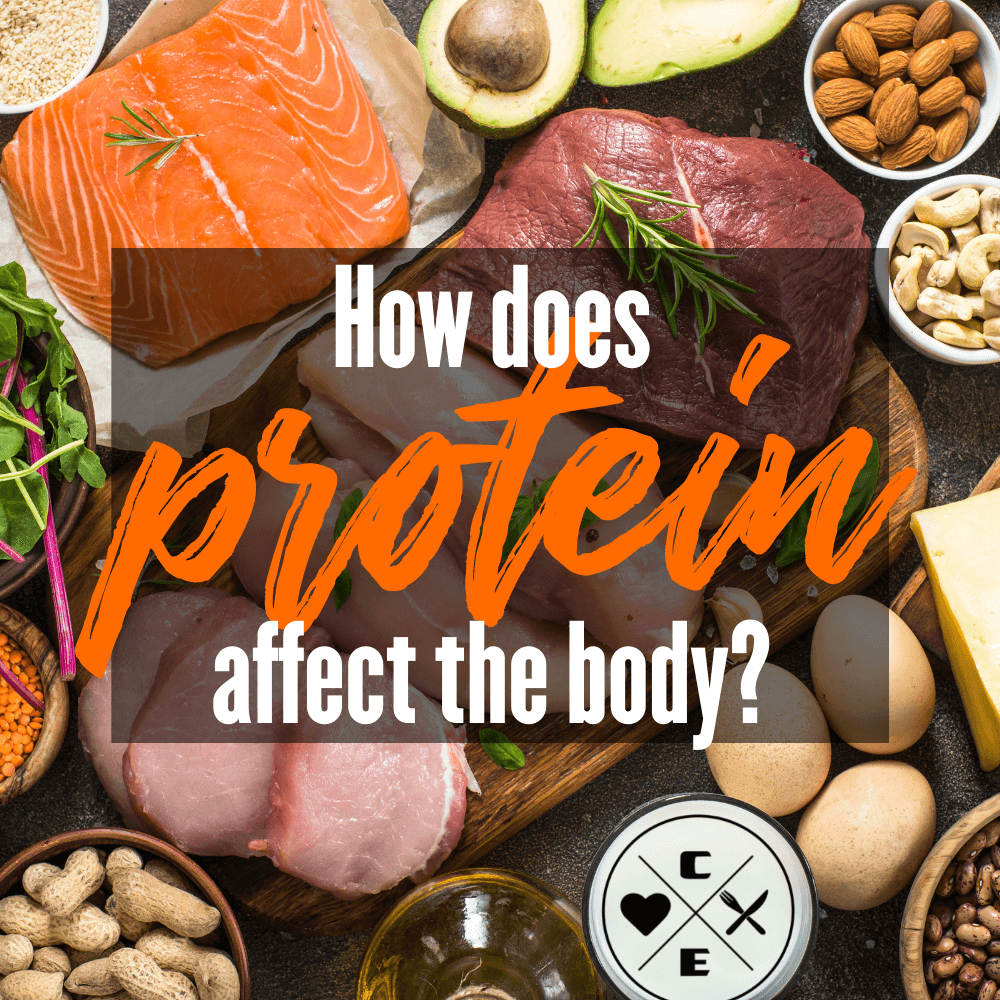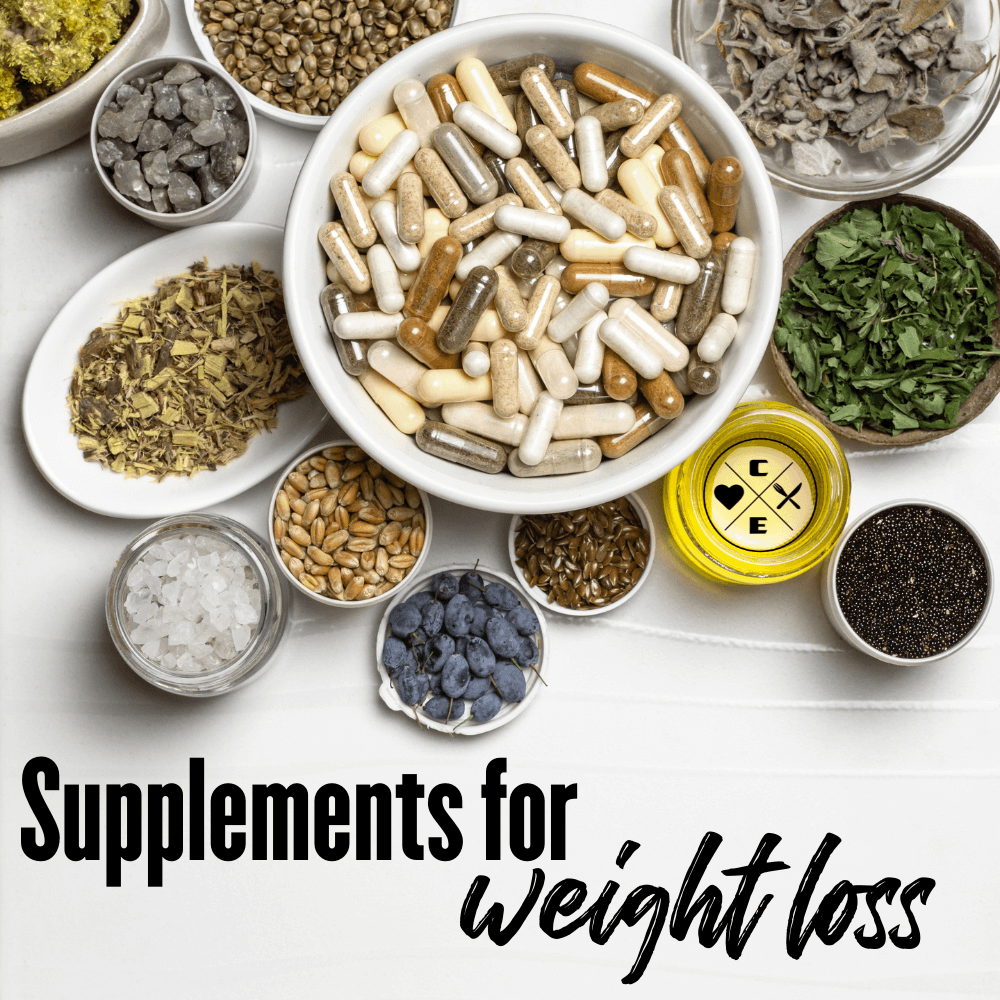
How does protein affect the body?
Jason Nista
Nutrition
|
Weight Loss
6 minute read
How does protein affect the body? When you’re trying to lose weight, you can become frustrated really quickly. Every day, experts will give you different information on what to eat and how to exercise in order to be successful than they did the day before.
There are, however, some tried and true tactics for weight loss that will always be considered a beneficial addition to your weight loss journey and protein is one of these.
Ask any expert, “Is protein good for weight loss?” and you’ll get the same answer. This is because the facts are scientifically proven.
This article will break these facts down for you so that you can feel confident when adding protein to your diet that you are, in fact, helping your weight loss goals.
Regulation of Hormones
When discussing the question of whether is protein good for weight loss, one of the biggest factors is the hormonal effect that protein has on the body.
A high-protein diet not only increases the hormones in the body that help you to lose weight, but it also helps to keep hormones that make you eat more at bay.
Several studies prove this fact. For example, peptide YY is a hormone that makes you feel full and satisfied. Eating protein has been proven to release this hormone into the body.
Another example of a study showed that eating a high-protein breakfast reduced the amount of the hormone ghrelin in the body. This hormone causes hunger and cravings.
If your efforts to lose weight have been difficult due to your constant hunger, you may need to increase your protein intake. Eating more protein can increase satiety and reduce hunger. It also helps to kick those crazy cravings to the curb.
Thermic Effect
The thermic effect of food is how many calories the body burns while digesting and metabolizing this food item.
Studies show that it requires much more energy to digest and metabolize protein than it does for carbs.
The exact number of calories needed is difficult to assess, however, experts say that about 20-30% of the protein calories you ingest are used just to break down and send these nutrients to the body.
So "How many calories should I eat to lose weight?" That means that when you eat 100 calories of juicy steak, up to thirty of those calories get used up just to digest it. This leaves only seventy calories for you to burn.
With the equation of calories in versus calories out for weight loss, cutting 30% out just in digestion is a big help.
Compared to carbs, which are digested much faster and easier using only 5-10% of the calories ingested, protein has a much higher thermic effect.
Protein Boosts Metabolism
A healthy metabolism burns calories at a good rate, even when you aren’t really doing anything. It uses energy to send nutrients and oxygen throughout the body at a consistent rate.
The more calories your body burns while at rest, the higher your metabolism.
Muscle mass requires more calories to maintain than fat. The more muscle mass you have in your body, the more calories you will burn each day just sitting on the couch.
Protein helps to boost your metabolism by supporting muscle gain and protecting your muscle mass from breaking down.
So, if you ask yourself. “Is protein good for weight loss?” and "how does protein affect the body" the answer is clear. If you burn more calories, even while you sleep, because you eat more protein, surely it can help you lose weight.
How Much Protein Do You Need?
We’ve successfully proven an affirmative answer to the question “Is protein good for weight loss?” but we still need to figure out how much protein you should aim to include in your diet each day.
The recommended daily intake of protein is about 50 grams per day but that is the minimum.
For weight loss, you should aim to make about 30% of your diet pure protein.
This can be hard; especially if you aren’t used to eating so much protein. Some of the best sources of protein include lean beef, pork, and poultry, but you can also get your protein from cottage cheese, eggs, peanut butter, Greek yogurt, and lentils.
Many who are trying to increase their protein intake appreciate the convenience of protein shakes. They don’t take long to prepare and contain a high amount of pure protein.
Of course, too much of anything will make you gain weight, so don’t overdo it.
For best results, add more protein to your diet along with consistent exercise, plenty of water, eating lots of fresh fruit and veggies, and getting good sleep.
Final Thoughts
In conclusion, proteins are indispensable to the human body, impacting it in multifaceted ways. They serve as the building blocks for muscle development and repair, catalysts for essential biochemical reactions, guardians of the immune system, regulators of hormonal balance, transporters of vital molecules, providers of structural support, and even an energy source when needed. Ensuring an appropriate protein intake through a balanced diet is imperative for overall health and vitality, underscoring the pivotal role proteins play in the intricate web of human biology.
FAQ
Are all proteins created equal?
No, proteins from different sources can have varying amino acid profiles and health effects. Animal-based proteins tend to contain all essential amino acids, while some plant-based sources may lack certain amino acids. A balanced diet that includes a variety of protein sources is ideal for overall health.
Can you consume too much protein?
Yes, excessive protein intake can strain the kidneys and lead to dehydration. It can also contribute to bone health issues if it results in the loss of calcium. It's important to strike a balance and not consume significantly more protein than your body requires.
What happens if I don't get enough protein?
Protein deficiency can lead to muscle wasting, weakened immune function, slower wound healing, and a range of health issues. In severe cases, it can result in conditions like kwashiorkor or marasmus.
Can you consume too much protein?
Yes, excessive protein intake can strain the kidneys and lead to dehydration. It can also contribute to bone health issues if it results in the loss of calcium. It's important to strike a balance and not consume significantly more protein than your body requires.
What happens if I don't get enough protein?
Protein deficiency can lead to muscle wasting, weakened immune function, slower wound healing, and a range of health issues. In severe cases, it can result in conditions like kwashiorkor or marasmus.
Related Articles
Best Supplements for Weight Loss
7 minute read
Tabata Workout Routine for Women at Home
5 minute read
Seasonal Shake Up
3 minute read



